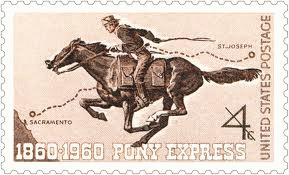The U.S. Postal Service (USPS) is the nation's
second largest civilian employer after WalMart. Although successfully self-funded
throughout its long history, it is currently struggling to stay afloat. This is
not, as sometimes asserted, because it has been made obsolete by the Internet.
In fact the post office has gotten more business from Internet orders than it
has lost to electronic email. What has pushed the USPS into insolvency is an
oppressive 2006 congressional mandate that it prefund healthcare for its
workers 75 years into the future. No other entity, public or private, has the
burden of funding multiple generations of employees who have not yet even been
born.
The
Carper-Coburn bill (S. 1486) is the subject of congressional
hearings this week. It threatens to make the situation worse, by
eliminating Saturday mail service and door-to-door delivery and laying off more
than 100,000 workers over several years.
The
Postal Service Modernization Bills brought by Peter DeFazio and Bernie Sanders,
on the other hand, would allow the post office to recapitalize itself by
diversifying its range of services to meet unmet public needs.
Needs that the post office might diversify into include
(1) funding the rebuilding of our crumbling national infrastructure; (2)
servicing the massive market of the "unbanked" and "underbanked" who lack
access to basic banking services; and (3) providing a safe place to save our
money, in the face of Wall Street's new "bail in" policies for confiscating
depositor funds. All these needs could be met at a stroke by some simple
legislation authorizing the post office to revive the banking services it efficiently
performed in the past.
Funding
Infrastructure Tax-free
In a July 2013 article titled "Delivering
A National Infrastructure Bank . . . through the Post Office," Frederic V.
Rolando, president of the National Association of Letter Carriers, addressed the
woeful state of US infrastructure. He noted that the idea of forming a national
infrastructure bank (NIB) has had bipartisan congressional support over the
past six years, with senators from both parties introducing bills for such a
bank:
"An NIB would provide a
means to channel public funds into regional and national projects identified by
political and community leaders across the country to keep the economy healthy.
It could issue bonds, back public-private partnerships and guarantee long-term,
low-interest loans to states and investment groups willing to rebuild our
schools, hospitals, airports and energy grids. An NIB with $10 billion in
capital could leverage hundreds of billions in investments."
What has blocked these bills is opposition to using
tax money for the purpose. But Rolando asks:
"[W]hat if we set up the
NIB without using taxpayer funds? What if we allowed Americans to open savings
accounts in the nation's post offices and directed those funds into national
infrastructure bonds that would earn interest for depositors and fund
job-creating projects to replace and modernize our crumbling infrastructure?
"A post office bank . .
. would not offer commercial loans or mortgages. But it could serve the
unbanked and fund infrastructure projects selected by a non-partisan NIB."
The
Unbanked and Underbanked: A Massive Untapped Market
The "unbanked" are
not a small segment of the population. In a 2011 survey, the unbanked
and underbanked included about one in four households. Without access to conventional financial
services, people turn to an expensive alternative banking market of bill-pay,
prepaid debit cards, check cashing services, and payday loans. They pay excessive fees and are susceptible
to high-cost predatory lenders.
Globally, postal banks are major contributors to financial inclusion. Catering to this underserved population is a revenue-generator for the post office while saving the underbanked large sums in fees. Worldwide, according to the Universal Postal Union , 1 billion people now use the postal sector for savings and deposit accounts, and more than 1.5 billion take advantage of basic transactional services through the post. According to a Discussion Paper of the United Nations Department of Economic and Social Affairs:
"The essential
characteristic distinguishing postal financial services from the private
banking sector is the obligation and capacity of the postal system to serve the
entire spectrum of the national population, unlike conventional private banks
which allocate their institutional resources to service the sectors of the
population they deem most profitable."
(Note: You can view every article as one long page if you sign up as an Advocate Member, or higher).






